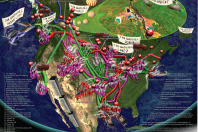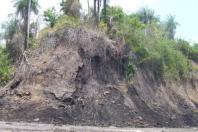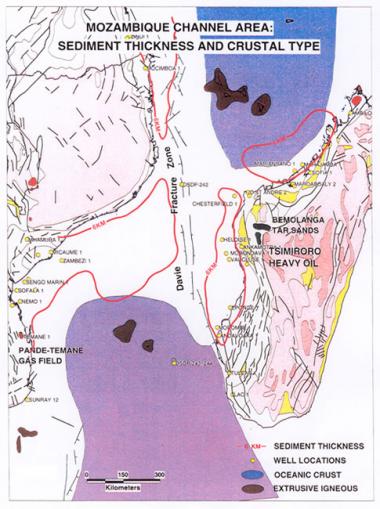Madagascar
The plot:
The most ecologically diverse country in the world, Madagascar is threatened with both immense in-situ tar sands operations, as well as what would be the largest tar sands mine on earth outside of Canada. The areas of the country where tar sands exist also contain two large national parks and exist in the most arid region of the country. In 2009 a military government came to power, with the newly installed president being the son of the former Malagasy head of TOTAL, the large French energy company intent on trying to open the vast strip mine (currently stalled).
The details:
There are two main tar sands bitumen deposits.
Tsimiroro contains approximately 9.3 bn bbl recoverable, Bemolanga contains between 9.8 and 16 bn bbl recoverable. This places Madagascar among the largest tar sands holding countries on earth.
In Situ required at Tsimiroro, Bemolanga requires strip mining. All plans are for synthetic oil production.
Despite threats from President Andry Rajoelina's military government to nationalize non-TOTAL (French) owned block licenses, Madagascar Oil (US/Texas based corporation) in Tsimiroro has been given approval and has developed small levels of production.
TOTAL and Madagascar Oil have been given development permits on a pilot mining project in Bemolanga. TOTAL and MO maintain the mining license but have shelved the project currently after running many tests and experiments, including bitumen from sand separation. Block is still held as MO & TOTAL asset.
MO aims ultimately for over 100 000 bpd for in-situ in Tsimiroro; MO & TOTAL have drawn up plans for 180 000 bpd or higher for Bemolanga (if constructed Bemolanga would have the largest tar sands strip mine in the world outside of Alberta, Canada).
Melaky, the region in the Central Western part of Madagascar, is one of the poorest regions of the island nation. The tar sands deposits adjoin two vital national parks, and also are in the most arid part of the country. Over 100 000 villagers live in the region near Tsimiroro and Bemolanga's proposed and existing tar sand operations. The rivers, almost completely dry during the dry season, are sustenance for humans directly, and provide as well for fish, rice, fruits and vegetables as well as zebu and chickens, all vital components of food supply for locals. Communities do not have electricity or running water and the vast majority live on less than one US dollar a day.
Madagascar may be an African test case, along with countries such as Congo-Brazzaville. Other African nations have various types of extreme oil deposits, with bitumen also existing in Nigeria and the Democratic Republic of Congo, and other similar deposits exist in countries such as Angola and Uganda. Madagascar, with low environmental standards and the largest plans for tar sands mining in the world outside of Canada may be the bell-weather for the future of the African continent, as climate change is already wreaking havoc on food production in the sub-Sahara.



